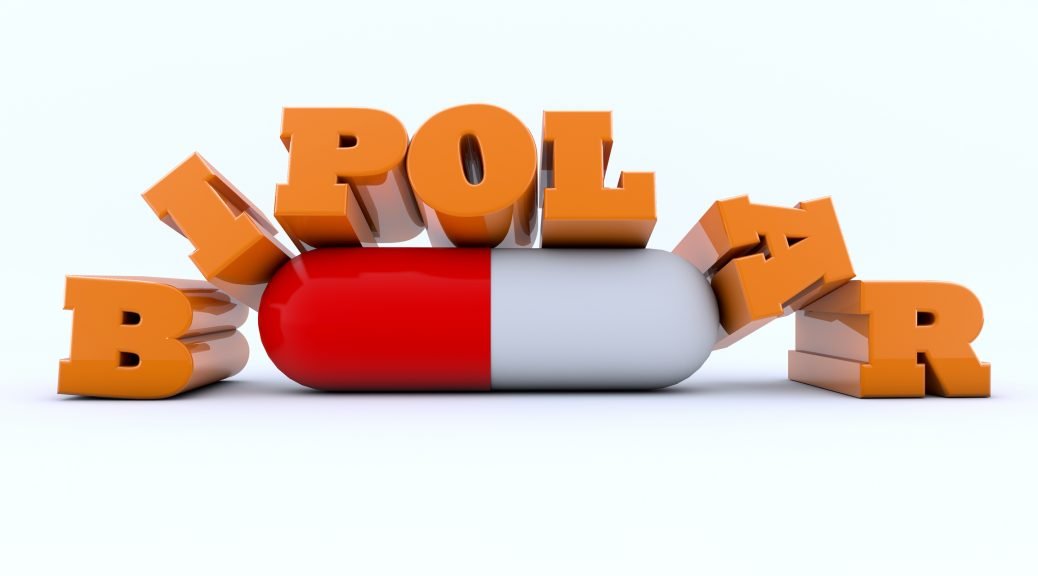Bipolar Disorder Medication Treatments: Overview
Bipolar disorder medication has been the treatment of choice for several decades now to control the severe and sometimes disabling symptoms of bipolar disorder. Doctors have been prescribing lithium and other mood stabilizers as well as anticonvulsant medications and atypical antipsychotics as the primary treatment for bipolar disorder along with the use of antidepressants and antianxiety medications, to help manage acute episodes as well as for the longer term management and to assist in managing future episodes.
Bipolar disorder medication treatments still rely upon the use of mood stabilizers such as lithium for the acute treatment of both manic and depressive episodes. Lithium has been used now for many decades to manage these moods and to prevent cycling into the other mood state. Doctors also have been known to use the anticonvulsants, antipsychotic medications, antidepressants, antianxiety and even sleep medications to manage the intense manic and depressive episodes as well as some of the associated problems, such as when the bipolar patient has a high level of anxiety or difficulty sleeping.
Mood stabilizers such as Lithium are used to prevent and treat the manic highs and the depressive lows. These medications are used to manage the symptoms so they do not interfere with school, work and with personal relationships. The main mood stabilizing medications are:
Divalproex sodium (Depakote)
Carbamazepine (Tegretol)
Lithium
Lamotrigine (Lamictal)
Valproic acid (Depakene)
Some of these medications are also chategorized as anticonvulsants such as valproic acid, lamotrigine and carbamazepine.
Other medications used to treat bipolar disorder include the atypical antipsychotic medications. These include
Aripiprazole (Abilify)
Risperidone (Risperdal)
Quetiapine fumarate (Seroquel)
Olanzapine (Zyprexa)
Ziprasidone (Geodon)
Loxapine (Loxitand or loxapine inhaler (Adasuve)
Asenapine (Saphris)
Cariprazine (Vraylar)
Lurasidone (Latuda)
If an individual is experiencing insomnia or sleep difficulties in relation to their bipolar symptoms, they may receive prescriptions for antianxiety medications such as benzodiazepines. Some of the more common benzodiazepines include:
Alprazolam (Xanax)
Lorazepam (Ativan)
Diazepam (Valium)
Clonazepam (Klonopin)
Or frequently some of the newer sleep medication such as zaleplon (Sonata) and eszopiclone (Lunesta} will be prescribed as they are believed to cause fewer problems with thinking and memory then the antianxiety medicines, benzodiazepines.
Frequently, the doctor will prescribe the mood stabilizing medication lithium initially, but may also start a medication to also assist with the bipolar depression such as:
Fluoxetine (Prozac) which is combined with olanzapine (Zyprexa) to form a medication referred to as Symbyax
Quetiapine fumarate (Seroquel)
Lurasidone (Latuda) which may be taken either alone or with valproic acid or lithium.
Bipolar disorder medication treatments and depression:
Due to the predominance of depressive symptoms in bipolar disorder, antidepressants are often combined with mood stabilizers. However, there are significant concerns that the use of antidepressants can trigger manic episodes. These concerns have usually been related to the older antidepressants referred to as tricyclics rather than some of the newer serotonin reuptake inhibitors such as Paxil, Prozac and Zoloft. This risk was identified in a study by Gijsman, Geddes, Rendell, Nolen and Goodwin in 2004 in which it was found that there was a significant risk of the emergence of a manic conversion from depression among patients with a mood or anxiety disorder treated with tricyclic antidepressants, rather than when patients were treated with the SSRI’s. Also, even higher conversion rates from depression to manic episodes were found among younger antidepressant users.
Benzodiazepines and bipolar disorder:
Benzodiazepines have been used at times to reduce agitation and comorbid anxiety as an adjunctive medication treatment for bipolar disorder. However, the actual efficacy of these medicines has not been adequately studied at the present time when used in addition to the mood stabilizing medications.
Normal course of medication treatment for bipolar disorder:
Although mood stabilizers, antidepressants and other adjunctive medications have been used for the treatment of bipolar disorder for many years, the normal course of bipolar disorder continues to be one of relapse of episodes of mania/ hypomania and depression. Studies (Gitlin, Swenson, Heller, and Hammond, 1995) have found one-year relapse rates as high as 40% even while being treated with mood stabilizers. Medication compliance continues to be a major issue with patients with bipolar disorder, with one study (Keck et al., 1998) finding inadequate medication use among approximately one half to two thirds of the patients within one year of initial treatment. Discontinuing the use of medications and the related relapse of bipolar symptoms with these patients is very problematic, especially when these medications have been stopped abruptly. Psychological treatments have been successfully utilized to promote medication compliance and to improve the symptom course of bipolar disorder patients. Overall, psychosocial interventions and psychotherapy have been found to improve the management of long-term bipolar symptoms and assist in relapse prevention.
References:
Gijsman, H.M., Geddes, J.R., Rendell, J.M., Nolen W.A. and Goodwin, G.M. (2004). Antidepressants for bipolar depression: a systematic review of randomized, controlled trials. American Journal of Psychiatry, 161, 1537-1547.
Gitlin, M.J., Swenson, J., Heller, T.L. and Hammen, C. (1995). Relapse and impairment in bipolar disorder. American Journal of Psychiatry, 152, 1635-1640.
Keck, P.E., McElroy, S.L., Strakowski, S.M., West, S.A., Sax, K.W., Hawkins et al (1998). Twelve-month outcome of patients with bipolar disorder following hospitalization for a manic or mixed episode. American Journal of Psychiatry, 155, 646-652.
By Paul Susic Ph.D. Licensed Psychologist



